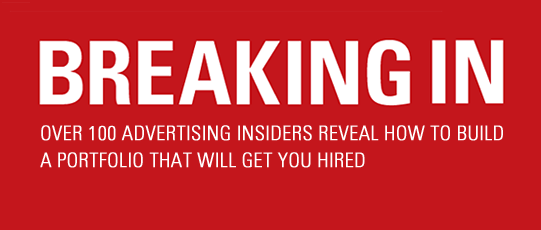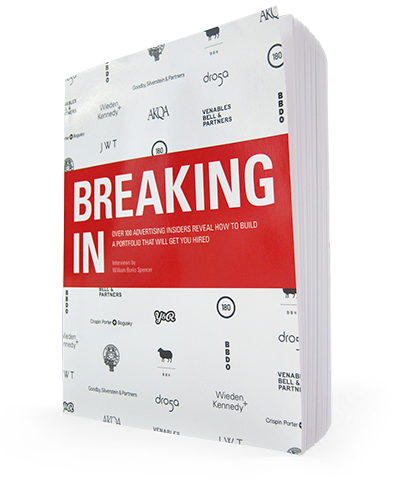Check out some great work from Ty Montague.
WS: What do you look for in a student book? And what impresses you?
TM: I always look for two things: Work that makes me uncomfortable and work that falls outside the bounds of what most folks would consider to be advertising. What I tell juniors is that, for the rest of their career, they will have someone telling them why a certain idea is too weird or crazy to show to a client. This is their time to show what they really believe is great. I hired a guy once because he had invented a line of products that were designed to raise money for the democratic party…peanut butter, jelly, stuff like that. I thought it was a genius way to raise money and, at the same time, raise awareness for the cause while people are walking down the aisle at Walmart or Piggly Wiggly. It’s not a crazy or extreme idea, just a really smart way for the party to communicate in a new way with people, and to raise money.
I also consciously look for people who have creative passions outside of advertising: photography or painting or poetry or music or whatever. I think that the more advertising draws from and stays close to the fine arts the better off we will be as an industry.
The third thing I look for these days is an appreciation for the possibilities of technology. I just read that the History Channel is using Foursquare to promote a show about the history of America by enabling little pop-ups that tell you about the history of the location where you are checking in. Genius. Very much advertising, but advertising that is completely contextual and hyper-local. A book with ideas like that in it goes a long way with me.
WS: How important is finish? If ideas are the most important thing, can sketches be enough? Do you look at actual books anymore, or is it all websites?
TM: I’ll look at anything. If the person is applying as a designer or an IA or creative technologist, then some work in that specific area is important. If they are applying as an idea person full stop, then that’s what I look for. Are the ideas good? I don’t care so much whether they are really slickly executed. And really slick execution minus great ideas is even worse.
Having said that, the tools for making stuff have never been more available. I was at a friend’s house the other day—this guy is a well known and very successful commercial director—and he was making a short film in his living room using a digital still camera.
At this guy’s level he could have chosen whatever tool he wanted to make his film, and he chose a tool that is available to pretty much anyone. My advice to students today is: make stuff. Make a lot of stuff. And keep making that stuff better. Your “book”–or your body of work—is never finished. If you’re talented, you should plan on spending the next 20 years making and remaking that body of work. Hopefully for a significant fraction of that time someone will be paying you to do it. But do it because you love it and do it because you’re never satisfied with anything you do.
WS: How important is copy? Do you need to see long-copy ads?
TM: If I’m hiring someone to be a writer then, yes, copy is important. The idea swirling around lately that words are dead is, I think, pretty silly. What do you spend most of your time on the Internet doing? Reading. Texts, emails, blogs, whatever. I predict that that behavior will continue, so the ability to string together a coherent argument using words will get you a very long way.
I think of good copy as salesmanship in text. The questions I ask myself are: Can this person put together a persuasive argument to get me to lay down money on this product? Do they make me want it? Do I get to the end feeling entertained? Informed? Wanting more? Those are the hallmarks of great copywriting. Still relevant and valid today, I believe.


Comments are closed.